A strong, future-fit approach to Net Zero needs to build resilience of all parts of the value chain and broader food system; and it needs to tackle both environmental and social resilience. We see three ingredients in particular that will help to achieve this goal: diversity, fairness and collaboration.
From ‘Net Zero’ targets to building a resilient food system: How can food businesses reconfigure their supply chains to build environmental, social and economic resilience as part of their journey towards Net Zero?

In our fourth and final exploration of food transition buzzwords, we delve into the theme of building resilience in our global food system in the face of intensifying challenges. We draw on insights from Forum for the Future’s Food System and Value Chains work. In particular: The Great Protein Transformation Challenge – a long term initiative working to build a resilient future fit protein system, Supply Chain Synergies – a report developed for the Oxford Farming Conference in 2023, and Re-imagining Future Value Chains – a new inquiry into what future fit food value chains could look like.
Imagine that it’s 2040 and we’ve achieved a Net Zero food system – what might it look like? As our Imagining Net Zero done well for the future of food blog explores, not all routes to achieving Net Zero are equal or, arguably, desirable. Here we argue for centring resilience as both a desirable outcome and powerful “design principle” in efforts to reach Net Zero in food. How might resilience as a guiding principle help us to better shape the food system of the future, and the transition towards it? And what does the definition of resilience need to encompass?
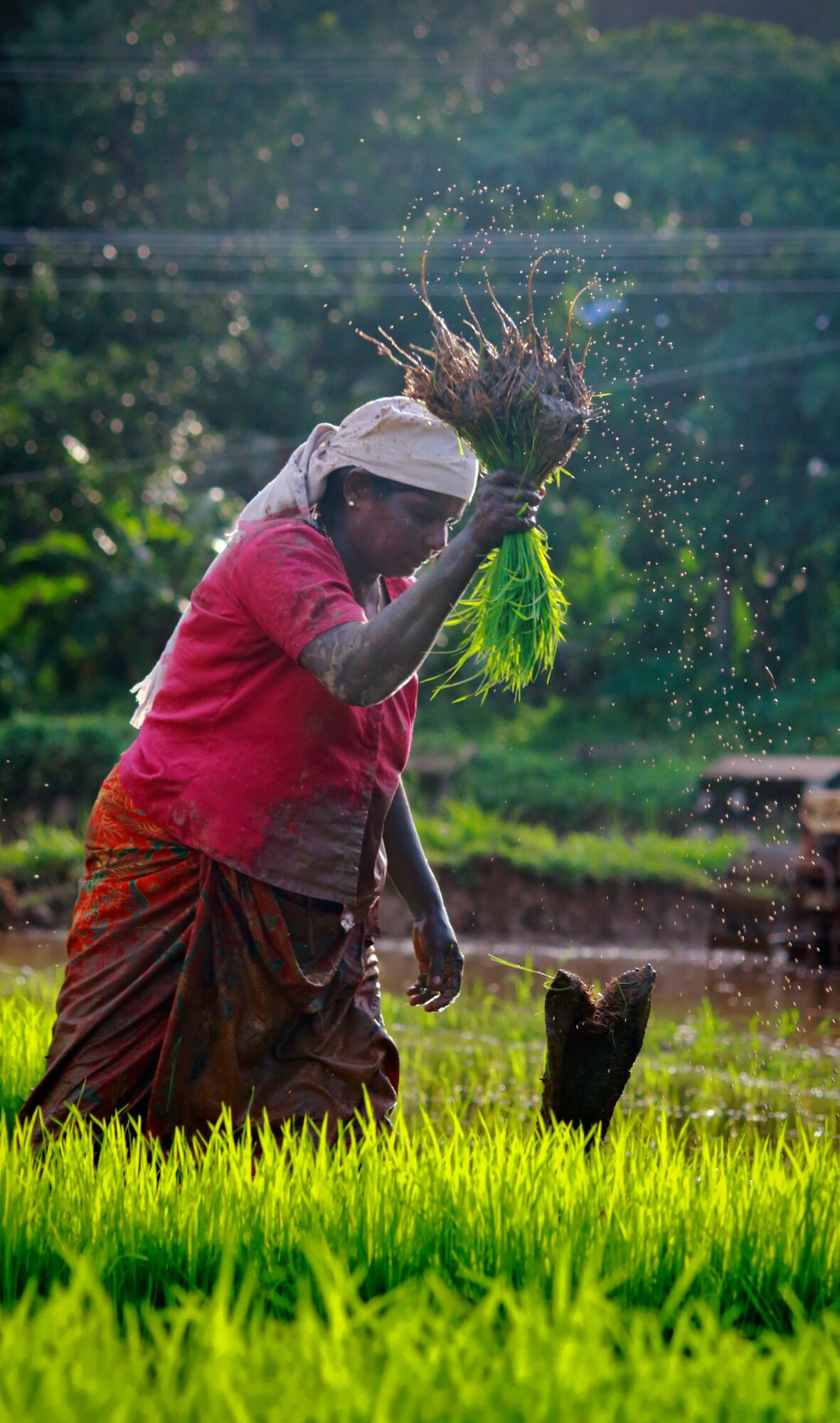
What do we mean by resilience?
You’ve probably heard the word a lot recently, as the food system repeatedly comes up against its limits in the face of mounting stresses and shocks – from disruptive weather patterns and volatile markets to rising prices of food, fuel and fertiliser from the war in Ukraine. And the shocks are set to increase in the decades ahead.
At this critical moment for humanity, we urgently need to transition to a food system whose goal is to guarantee equitable access to nutrition for all whilst securing sustainable livelihoods for producers and restoring nature.
Given the uncertain and volatile nature of the future we are undoubtedly heading into, resilience is a critical quality for the food system – that is, the ongoing ability to achieve and protect the desired outcomes of the system, even in the face of shocks, stresses and disruption.
At the Forum for the Future, we have observed two complementary and interdependent aspects we believe should be central to how we think about resilience:
A strong, future-fit approach needs to build the resilience of all parts of the value chain and broader food system; and it needs to tackle both environmental and social resilience.
What might this look like on the path to delivering the best possible version of a Net Zero food system?
What are the key components of resilience done well?
What can we learn from current efforts to build resilience in food systems? We observe three strong components for “resilience done well”:
Diversity
Diversity is the foundation of resilient natural ecosystems, allowing them to absorb change and reorganise in the face of disturbances. Diversity is relevant to all aspects of the food system (read more about this in our blog here), but here we touch on three areas that could offer significant resilience benefits: ecological diversity, financial diversity and value chain diversity.
- Ecological Diversity: At the farm level, working with a diverse range of crops can enable the land and farming communities to better cope with environmental, social and economic shocks. It is a key component of regenerative agriculture that retailers and food manufacturers such as Danone and Walmart increasingly acknowledge as a way to deliver on their Net Zero and biodiversity targets.
- Financial diversity: Building in additional enterprises (as well as adding new crops or livestock into their food production model) or exploring a diversity of business models can spread the risk of financial exposure for farming communities and help build resilience along the value chain.
- Value chain diversity: Local value networks can be nimble, adapting quickly to changing social or environmental conditions while minimising waste. They also help food to play a greater role in building wealth, jobs, and communities and enable a greater share of the financial value to reach farming households – all of which build resilience.
How could your food business support suppliers to diversify their crops and activities at farm level and more broadly, in order to build resilience?
Fairness
Fair and equitable distribution of value, benefits and risks across the food system will ensure different actors in the value chain have enough reserves to change course when faced with setbacks or to act in anticipation of future disruption.
- Equitable distribution of value, benefits and risks: Today farming communities bear the brunt of many of the costs and risks of transforming our global food system. To keep farming households in the game of food production as the challenges intensify, they need to receive a fair share of the value of the goods they produce, and a fair share of the benefits accrued from their activities – including environmental and social goods, as well as the food itself. Farming communities need access to enough to cover the cost of production and to invest and innovate for protection against future shocks.
- Equitable value chain relationships: Equity also has to include relationships – with farming communities highlighting the need for relationships characterised by reciprocity and shared negotiation, predictability, stability, confidence, and sufficient resourcing to invest and innovate. Without that it is hard for farming communities to transition to new practices and manage the risks of diversifying beyond their current crops or livestock. The spotlight is increasingly shining on this fragility of value chain relationships – for example, Sainsbury’s Dairy Development Group (SDDG) employs a model in which farmers benefit from full membership of the group and equal votes in decision-making on the price of milk. This more equitable structure has led to a boost in the income of farming households alongside savings for the supermarket.
How might new supply chain models enable your business and its suppliers to achieve Net Zero and build resilience, by sharing more of the risks and benefits?
Meaningful Collaboration
Collaboration across value chains is a critical tool for delivering Net Zero in a resilient, smart, just and regenerative way: unless a significant portion of the system is pulling in the same direction, it is hard to create the desired change on the biggest challenges.
- A genuine seat at the table: ‘Collaboration’ needs to be about genuinely and actively involving all parties in plans and decisions, sharing some of the power (and responsibility). Smallholder farmers that supply UK coffee brand Cafédirect have shares in the business and two seats on the board, giving them a direct voice in the governance of the business they supply and a vested interest in continuing the strong relationship.
- Pre-competitive collaboration on the biggest systemic problems: Food businesses also need to engage in pre-competitive collaboration to tackle some of the biggest challenges in the food system that they can’t tackle alone – looking to the future together to identify blindspots to help the food system become truly resilient to shocks and stresses. This is especially true in consolidated parts of the food system, where retailers and manufacturers share supply chains and need to offer aligned messages to accelerate progress. Forum for the Future’s Great Protein Transformation Challenge brought together stakeholders from across the protein system, to better understand the future trends affecting the protein system and the interconnections between them, and identify areas for collaboration that would unlock progress in building a resilient, future-fit protein system.
How could you collaborate with other parts of your value chain, sector or system to make better progress together in building resilience?
How have we applied these?
Building resilience in Salmon Feed Industry
The Salmon Feed Action Sprint, hosted by Forum’s Great Protein Transformation Challenge, brought together actors from across the salmon feed industry to conduct a deep exploration of the issues facing the sector, including testing the limits of the current industry model, and identifying principles the industry can adopt to build its resilience over the next decade.
The group explored key questions in their quest to take ambitious action:
- What does the nutritional profile of salmon feed look like, in a just and regenerative world?
- How can this be achieved within planetary boundaries?
- How can we ensure everyone involved (from the producers to the salmon) is enabled to thrive?
Many of the struggles and challenges facing the farming industry as a whole are present in the salmon industry, and these forward-thinking questions are equally applicable to wider food supply chains.
Top tips for reconfiguring value chains for greater resilience
So, how can food businesses build the genuinely resilient supply chain of the future?
Here are some ways of thinking about it and acting on it that we think could help:
- Explore the opportunity to reset: Companies must take responsibility for the social and environmental impact of their value chains. Such change requires a mindset shift from allowing negative impacts to be considered externalities (the responsibility of their value chain, not their own) to investing in building a just and regenerative future through resetting the deep design of the business. This could include investing in building the capacity of their value chain to contribute to the regenerative future we want as well as taking responsibility for the scope 3 emissions and human rights within their value chain.
- Experiment with thinking about supply chains as value chains and networks: Linear “supply chain” models suggest we’re all just links in a chain, whereas value networks provide a more holistic view of value exchange. Value chain and value network models, inspired by nature and physics, can help to unlock resilience through innovative forms of collaboration and fairer, more future-fit relationships, contracts, and incentives.
- Shift incentives and mindsets: Shift from a linear “cost reduction” mentality to a more holistic “value creation” mindset to incentivise all business functions to prioritise long-term social and environmental outcomes – alongside financial goals. This includes challenging – and giving permission to – procurement teams in particular, to develop new models and buying practices that deliver those multiple positive outcomes, achieving greater resilience for the business and its suppliers, as well as wider society.
As changemakers across the food system, we are asking you how can businesses address the need for resilience across the value chain?
- How could your food business support suppliers to diversify their crops and activities at the farm level and more broadly, in order to build resilience?
- How might new supply chain models enable your business and its suppliers to achieve Net Zero and build resilience, by sharing more of the risks and benefits?
- How could you collaborate with other parts of your value chain, sector or system to make better progress together in building resilience?
Recommended Reads
- Report out now: OFC 2023 Report: Supply Chain Synergies
- Futuring Podcast: With a window for narrow innovation, will our food systems transform or unravel?
- Insight: Making the most of a crisis: reinventing value chains
- Insight: Food systems transformation: what shifts are needed and how do we get there?
Definitions
- Just and regenerative’: The approach strengthens the capacity of all living systems to adapt, replenish and regenerate – intrinsically building in resilience. It encourages businesses to go beyond current extractive models (that secure shorter-term benefits for the business but at the expense of other people and the environment), respecting everyone’s human rights and potential to thrive; and rewiring our economies and societies to serve both people and the planet.
- Business Transformation Compass: Forum for the Future’s Business Transformation Compass offers a practical way for businesses to understand their current mindset and assess what they would need to do to adopt a just and regenerative mindset to unlock the benefits of adopting these new ways of working and living.
- Value networks: A value network, as defined by American business consultant Verna Allee, is “any set of roles and interactions in which people engage in both tangible and intangible exchanges to achieve economic or social good” We use this in place of “supply chains or value chains” to describe a more holistic picture of value exchange and to recognize that many communities of color find the “supply chain” terminology harmful because of its associations with the history of slavery in the US.
Get in touch
Does any of this strike a chord with you as you try to build resilience into your food value chains?
What are you seeing? And what are you stuck on?
The Futures Centre is a great hub to share your insights or questions, so that others can learn from them or build on them. We’re tracking this challenge live on the Futures Centre, head over to see what #signalsofchange we’re spotting and to add your perspective.
Or are you interested in partnering with Forum for the Future on Re-imagining the Future of Value Chains or our wider Food System work?
Reimagining the Future of Value Chains
Bringing together diverse perspectives from the marginalised to the mainstream, the Future of Value Chains Inquiry, will explore what the future context for agricultural value chains may look like, and alternative models that can enable them to survive and thrive while embedding just and regenerative principles.
- Please contact Neil Walker [Value Chains Change Designer] at n.walker@forumforthefuture.org for more information.
Food System Transformation
By 2030 we want to have catalysed a new system in which food is produced and consumed in a way that is affordable, healthy and good for the planet.
- Please contact Lesley Mitchell: [Global Strategic Lead Food] at L.Mitchell@forumforthefuture.org for more information.
Business Transformation Compass
Forum for the Future’s Business Transformation Compass offers a practical way for businesses to understand their current mindset and assess what they would need to do to adopt a just and regenerative mindset to unlock the benefits of adopting these new ways of working and living.
- Please contact James Payne: [Global Strategic Lead Business] at j.payne@forumforthefuture.org for more information.
About Recipes for food system transformation
From November 2022 to March 2023, we published a series of insights into how to drive more transformative change in the global food system. We drew on a range of perspectives, including Forum’s own work on the future of food, in particular. what we have learnt from our multiple initiatives on the future of protein, as well as insights emerging from COP27 and other events, initiatives, and conversations happening around the world. We delved into what is stopping us all from achieving more positive change, what is working, and what more is needed to shape the transitions needed for the world to thrive.
We hope this will inspire change-makers across the food system to think differently about what action they can take and how – join us in this conversation and tell us what you think!
This Live Research is being hosted by Forum for the Future’s Great Protein Transformation Challenge, which has been kindly supported by Hershey’s, Nestle, Volac and WWF. The views shared here do not necessarily reflect the views of these supporting organisations.
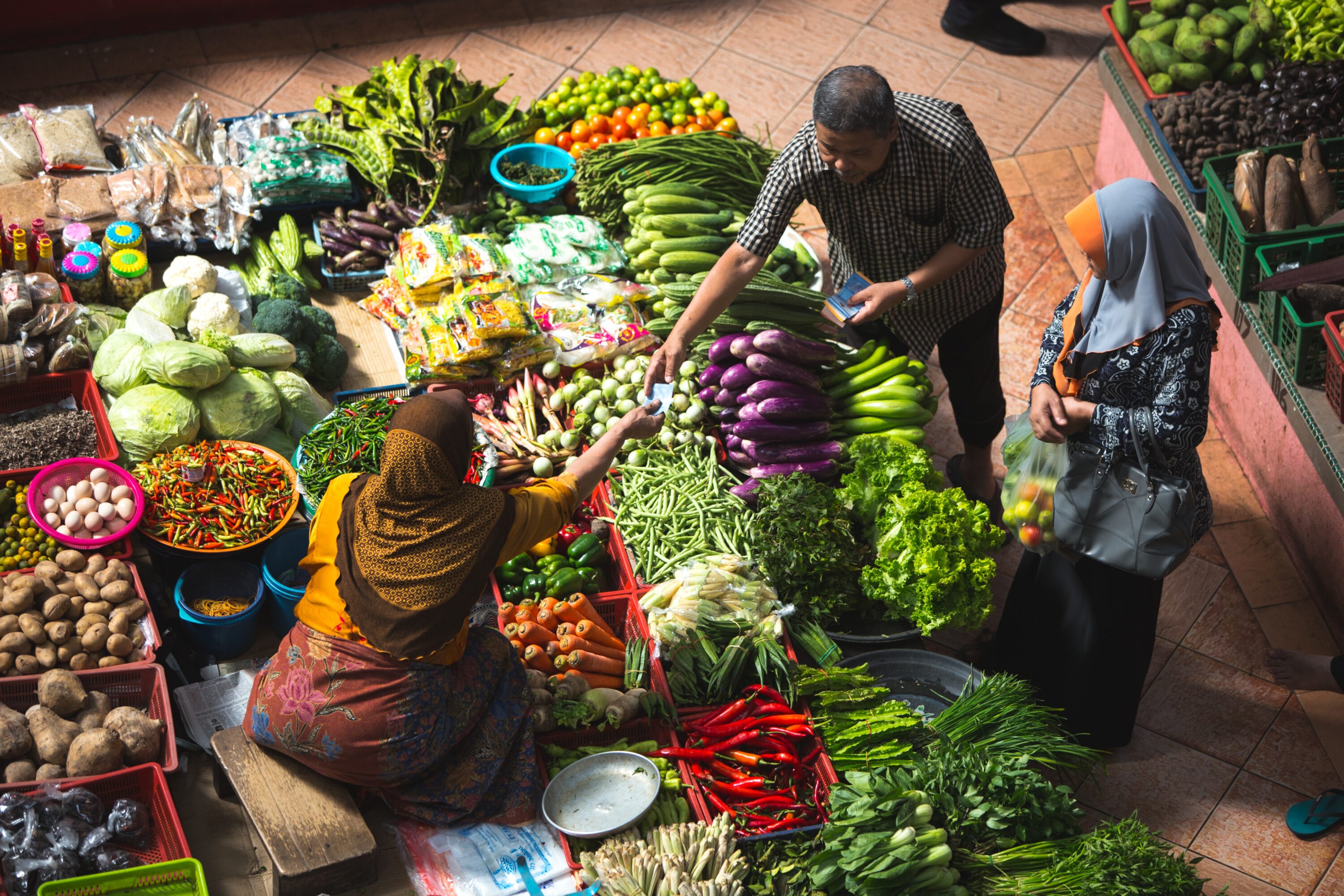


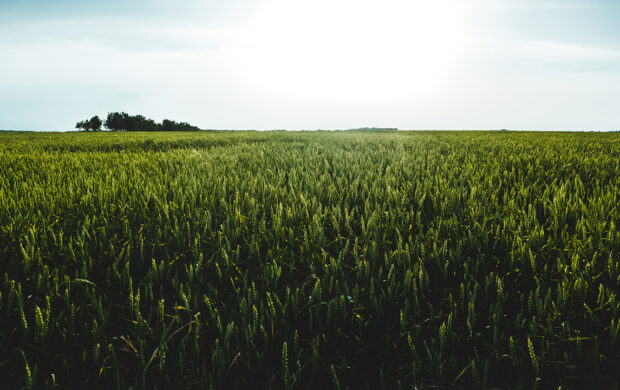



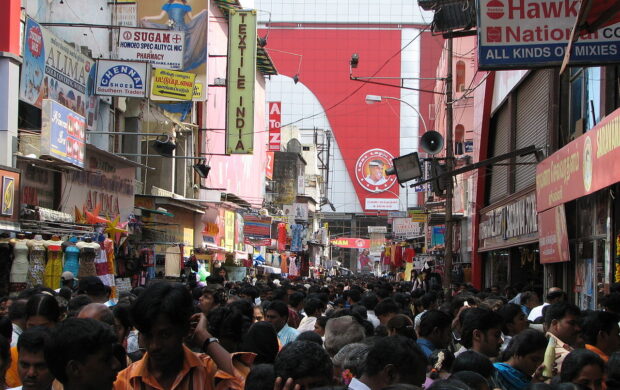


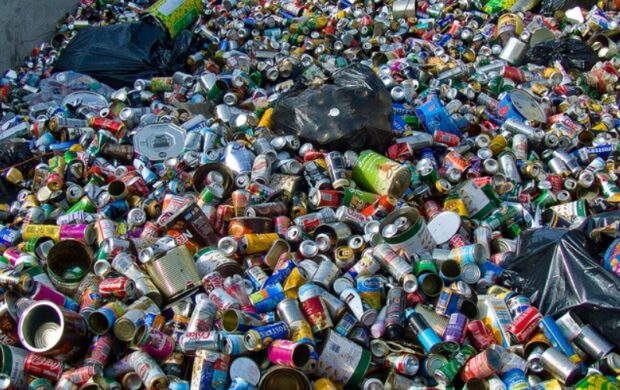





Join discussion